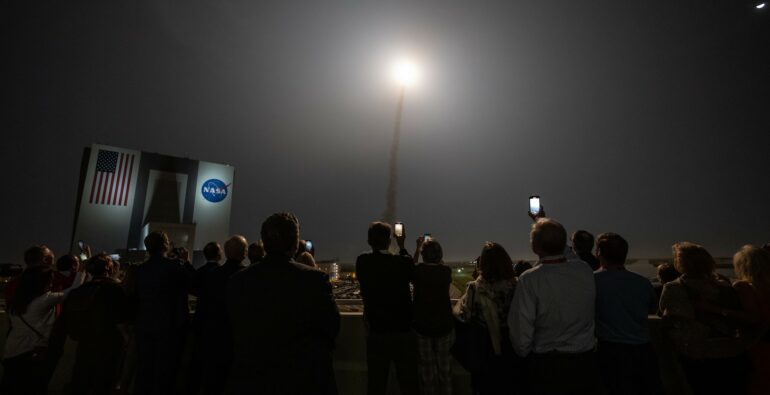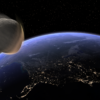Most Americans (69%) believe it is essential that the United States continue to be a world leader in space. But only a subsection of that group believes NASA should prioritize sending people to the Moon, according to a new report released by the Pew Research Center. The study surveyed over 10,000 U.S. adults on their attitudes toward NASA and their expectations for the space industry over the next few decades.
As scholars who study international relations in space and the history of the space program, we are interested in understanding how Americans view space activities, and how their perspectives might affect the future of both U.S. and global space developments.
US dominance in space
The United States’ most visible effort to maintain world leadership in space is arguably its Artemis Program to land humans on the Moon by late 2024. The U.S. has emphasized international cooperation, bringing in Europe, Japan and Canada as partners in the program.
With China and Russia undertaking a parallel effort to land people on the Moon, many see a competitive element to these plans as well.
One of the most striking features of the recent poll is how similar it looks to earlier public opinion polling, especially one conducted in 2018. The popularity of NASA has remained consistently high for decades, frequently with a favorability rating between 60% and 70%, far higher than many other federal agencies. But the specific priorities of the U.S. space program have often been at odds with public opinion.
While 65% of Americans said in the new Pew survey it was essential that NASA continue to be involved in space exploration, only 12% said that sending human astronauts to the Moon should be NASA’s top priority. Although somewhat at odds with the national space agenda, this valuation is not new. Even during the 1960s, when NASA undertook Project Apollo, Americans ranked solving problems on Earth – such as pollution, poverty and national beautification – above landing humans on the Moon.
Most Americans for the majority of the 1960s responded in public opinion polls that the Apollo program was not worth its high budget. Over time, however, the Apollo program has grown in popularity.
Between 1989 and 1995, polling revealed that the public thought the U.S. space program should focus on robotic spacecraft as opposed to crewed missions. This position began to change in the mid-1990s with docking of the space shuttle with the Russian space station and several blockbuster space-themed films.
Despite moderate public support, human spaceflight consistently receives the majority share of U.S. civilian space funding, suggesting that public opinion and the national space agenda stand apart. The most recent poll results underscore how a combination of rationales – including advancing science, national stature, geopolitics, economic interests and national security – rather than public opinion alone have shaped national space priorities throughout…



